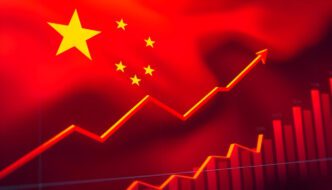Executive Summary
The Story So Far
Why This Matters
Who Thinks What?
A recent analysis suggests that China’s economic and political strategies under President Xi Jinping are increasingly being viewed through a lens of “peak China” by some Western observers, who argue that the country’s rapid growth period may be plateauing. This perspective, which gained traction among American policymakers and commentators, posits that China faces significant internal challenges, including demographic shifts, a real estate crisis, and an authoritarian political system that stifles innovation, potentially hindering its long-term trajectory as a global superpower.
Evolving Western Perceptions of China
The “peak China” narrative represents a significant shift from earlier Western views that often emphasized China’s unstoppable rise. This change is partly fueled by a re-evaluation of China’s economic vulnerabilities and the perceived limitations of its governance model. The argument suggests that rather than an ever-expanding competitor, China might be a nation grappling with the consequences of its own development strategy.
This evolving perception is not universally accepted, with some analysts cautioning against prematurely dismissing China’s resilience and strategic capabilities. However, the “peak China” discussion has become a prominent feature in debates about future global power dynamics, particularly in the United States.
Internal Challenges and Economic Headwinds
Proponents of the “peak China” theory point to several key internal issues. China’s demographic crisis, marked by a shrinking and aging population, is seen as a long-term drag on economic productivity and innovation. The ongoing real estate crisis, characterized by developers defaulting on debts and unfinished housing projects, further exacerbates economic anxieties and consumer confidence.
Additionally, the analysis highlights the impact of China’s authoritarian political system. Critics argue that its tight control over society and the economy, coupled with a focus on state-led enterprises, may be hindering the kind of organic innovation and private sector dynamism that drove previous periods of growth. This suppression of dissent and independent thought is viewed by some as a fundamental impediment to sustained progress.
Geopolitical Implications and U.S. Strategy
The “peak China” narrative has significant implications for U.S. foreign policy and international relations. If China’s power is indeed peaking, it could influence how Washington approaches competition and cooperation with Beijing. This perspective might encourage a more assertive stance, viewing China as a less formidable, albeit still significant, challenge.
Some analysts suggest that the “peak China” framing could also lead to a reassessment of alliances and economic strategies, potentially strengthening partnerships with other Indo-Pacific nations. It also raises questions about the long-term effectiveness of economic decoupling strategies and technology restrictions implemented by the U.S. and its allies.
A Shifting Global Landscape
The discourse surrounding “peak China” reflects a growing debate about the future trajectory of the world’s second-largest economy. While China continues to wield considerable global influence, the emergence of this narrative signals a critical re-evaluation of its internal vulnerabilities and their potential impact on its long-term power and stability. This perspective challenges previous assumptions about China’s inevitable ascent, suggesting a more complex and potentially constrained future for the nation on the world stage.








